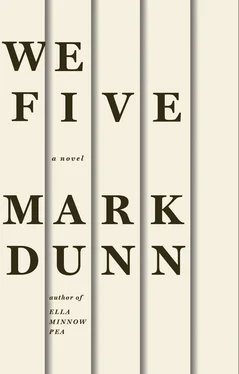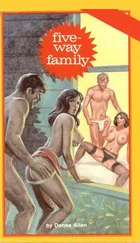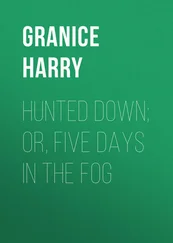Jane’s mouth fell open. Ruth rolled her eyes again and tried to find something distracting out the window to take her attention away from the conversation.
“You’re awfully disgusting,” replied Jane, with a casualness to her delivery that belied the harsh sentiment, “ and awfully picky, considering you drive a courtesy van for a living.” Jane punctuated her observation with a flirty wink directed toward the van’s rearview mirror.
“Nothing wrong with being picky even while you’re slummin’,” replied Tom. “Anyway, if I can get all your phone numbers, then I’ll divvy them up between the guys, and we’ll all do something together. Some nice, safe, ‘break-the-ice’ group activity.”
“Count me out,” said Ruth, under her breath. She was looking at a cotton field, the plants not yet plowed under. Little white bolls polka-dotted the landscape like dandruff.
“I tell you what I’ll do,” said Jane, sounding like a used-car salesman. “I’ll give you my phone number. You can probably get it easy anyway. It’s in the book under ‘Higgins Antiques.’ And I’ll talk to my friends — including Ruth here, who I’m sure would be up for anyplace where she can get fried catfish or hot tamales or ribs. Ain’t that right, Ruth?”
“You act like I’m a shark that just has to eat all the time,” said Ruth, still looking out the window.
Jane ignored this. “Anyway, Mr. Katz, I’ll let you know how I did when you call.”
“Sounds like a good plan,” said Tom. “You’ll like my friends.”
“You mean even though they’re clearly ‘slummin’ to be with us?”
“I shouldn’t have said that. They’re good guys. And they know you’re good girls.”
“What does that mean: ‘good girls’? Maybe you haven’t noticed, but we all work as cocktail waitresses in a casino.”
Tom laughed. “We won’t hold that against you.”
Ruth groaned again, this time quite audibly.
Tulleford, England, August 1859
Tom Catts and his four friends, all of whom worked at the Tulleford Cotton Mill, took their luncheon in the High Road. At six or seven minutes past the matutinal hour of eleven o’clock from Monday through Friday (luncheons were not taken on Saturday half-holidays), the five men placed themselves side-by-side upon the long bench which had been installed by Mr. Crawdon to accommodate those who came to have their shoes repaired in his shop. Sometimes there was a lady or gent waiting upon the bench for the heel of a top boot to be mended or a blucher to be revamped. But this person would not reside there for very long after the importunate arrival of Tom and his fellow millhands, for their intercourse was noisy and roistering, and their slovenly workingmen’s dress — oily and cotton-fibre-dusted fustian — was equally difficult to bear, especially if one was not disposed to affiliate with those of ill-bred behaviour and disreputable appearance. As the men would laugh and jostle one another whilst clanking their lunch buckets and clinking their tin cups, the customer would be crowded and crushed to the point of removing him or herself to another precinct — perhaps the bench in front of the blacksmith’s shed or the one before the linen-draper’s concern, or even the fishmonger’s shop (where the fragrance of fish was only slightly less insulting to the nostrils as that of working men bearing the stench of grease and metal-and-spindle-lubricating mineral oils about their persons).
And why was it was that Mr. Catts and his mill-mates should insist upon this particular bench and none other? The answer was a simple one: the spot where the bench was placed commanded the best view of Mrs. Colthurst’s Fine Dress Shop, situated directly across the lane. Here the five young men partook daily of their forenoon refection (for unlike Mrs. Colthurst and her employees, who were not expected to begin work until eight o’clock, early-shift millworkers commenced their labours at half past six). Was there something architecturally interesting about the dress shop that drew the young men so close? Of course not. It was a rather drab and dingy building, only slightly redeemed by the charming colourful frocks hanging in its large street-side window. No, as the reader has, no doubt, already guessed, it was the young lasses who went thither to toil each day, and who, by fortunate coincidence, came out from it to take their bit of late-morning sun in fortuitous concurrence with the latter half of the young men’s luncheon.
However, today was different. The weeks of male gawking begetting female blushing and bashful giggling had drawn to a close. A new epoch was dawning, ushered in by none other than Mr. Tom Catts himself, whose idea it was to move matters into a brand new sphere of engagement betwixt the sexes.
Tom, though informal leader of his group, was not its oldest member. This distinction belonged to Tom’s lifelong friend Cain Pardlow, who, at three-and-twenty years of age, had watched his four companions wax from early childhood — their collective friendship cemented in the shabby and soot-begrimed side avenues of the Manchester neighbourhood of Hulme. It was from this city that the five had fled only two years earlier to seek employment in a different town — one that afforded fresh air and salubrious sunlight, at least during those hours spent away from the bronchiotoxic and Cimmerian cotton mill.
Cain was quite blind without his spectacles. He had dark brown hair and skin of perhaps a lighter tone than that of his companions, for as boilerman’s apprentice, Cain worked in the mill year-round. The other four, who were engaged as spinners and weavers, slipped away with most of the other men of the town in early summer to make hay in the neighbouring fields, as was the long tradition of this parish. (It was a tradition that would soon be coming to an end with the anticipated demise of Lord Tulle, who had always wished his many tenanted acres kept under cultivation and the parish to maintain its historical bucolic character. His heir, on the other hand, was a majority stakeholder in one of the mills, and was eager to see Tulleford join the march to rapid industrialization, which was producing smoke-belching mills and factories from the Pennines to Liverpool Bay, whilst reducing the parish’s cornfields to a state of permanent stubble. For an expenditure of only a few extra pence a week a farmhand could be enticed to abandon his plough and pitchfork and take up the operation of a mule spinner or a loom, which generated enormous profit for the mill owners.)
Cain Pardlow read. He read Lucretius and Epictetus and The Meditations of Marcus Aurelius and The Six Enneads of Plotinus, betwixt the alternate firings of the twin furnaces of the mill’s new Lancashire boiler. He spoke sometimes to his chums of what he had learnt from his scholastic maunderings, but found little in their responses with which to fuel the flues of enlightened discourse, and therefore he largely confined his conversations with his mill-mates to more prosaic observations. It was axiomatic that most men (and women) in the mill town of Tulleford — with the exception of fireside dips into the Holy Bible and the occasional browse of a Manchester newspaper — did not read.
Cain was born a twin, and when his brother was brought forth into the world strangled by Cain’s umbilical cord, his parents named the dead child Abel and its apparent fetal murderer the only logical companion-appellation. Though Cain was slender — almost scarecrowish in frame — yet he possessed nonetheless a gently rounded face, his cheeks deeply dimpled — the indentations becoming even more pronounced when he smiled — though this was not a common occurrence, for whilst Cain sometimes perceived the potential for levity in situations deriving from his daily intercourse, he was not inclined to acknowledge this fact upon his face, except when there should be missteps and pratfalls resulting from the impetuous blunderings of his mates. (For how could even the most inveterate stoic not laugh — or at the very least, smile —over such puerile behaviour?)
Читать дальше












